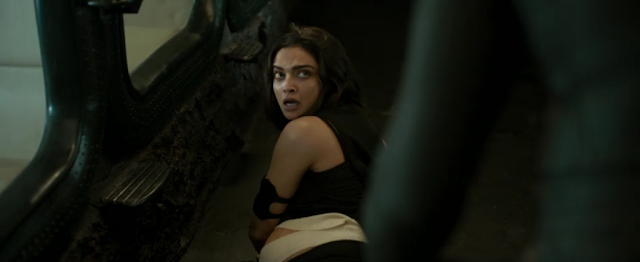Shuddh Desi Romance (2013) is part of the post Dil Chahta Hai wave of movies that try to depict the experience of modern young people living in India's cities. It came out twelve years after Dil Chahta Hai, though, so it's much more willing to challenge the tropes of frothy Bollywood romance, largely by stripping out the froth.
Raghu (Sushant Singh Rajput) is a professional wedding guest; when the bride or groom don't have enough friends or relatives handy to fill out the guest list but they still want to make a good impression, wedding planner Goyal (Rishi Kapoor) will provide ersatz friends and relatives at reasonable rates. Now Raghu is getting married himself, an arranged marriage to Tara (Vaani Kapoor), and Goyal has provided guests for him as well, including the beautiful and intelligent Gayatri (Parineeti Chopra.)
That's a problem, because Raghu is immediately smitten with Gayatri. They have a long conversation on the night bus to the wedding, even kiss a little, and while Gayatri puts a stop to things, Raghu starts reconsidering his wedding plans, and winds up running away before the ceremony.
Back in Jaipur, Raghu meets Gayatri again, and they start talking. Raghu is very clear that he is not interested in any sort of "love is friendship" business; he's attracted to her, and he wants a relationship. Gayatri ios a lot more cynical; this isn't her first rodeo, and her heart has been trampled before, so she's determined that all future rodeo-related activity will be on her terms. Still, she feels an attraction too, and before long Raghu has moved in.
It's not always easy; this is still India, and Raghu has to pretend to be Gayatri's brother or the neighbors will talk. (The neighbors are not actually fooled, but it's important to make the effort.) There are some fights, because Raghu is a starry-eyed romantic who jumps into everything without thinking, while Gayatri is sure that he's going to leave her, because he's done it before. Still, they decide to get married, and at the ceremony Gayatri runs before he has the chance.
Time passes. Raghu is still sad, and doesn't want to attend any more weddings, ever, but Goyal pulls him back for one last job. And that's where he runs into Tara again. She's one of the actual wedding guests, and she's surprisingly chill about the whole "being left at the altar" thing. Before long they're dating, and Goyal is wondering what these women see in Raghu.
And of course Gayatri is bound to show up sooner or later, because this is almost an Archie triangle; Tara is Betty, Gayatri is Veronica, everybody is a decent person, and they all want the best for each other, but while Tara and Gayatri get along, they barely know each other.
However, Shuddh Desi Romance isn't really trying to be Kuch Kuch Hota Hai or any of the other classic Bollywood love triangles. This movie is almost self-consciously modern, with characters sitting down to address the camera, The Office-style, endlessly analyzing their feelings rather than silently longing for each other, and concluding that maybe conventional marriage isn't for everyone. One of the key features of Bollywood romance is that once the characters have fallen in love they are determined; they might choose to sacrifice that love, but they never stop believing in it. They know what they want. In Shuddh Desi Romance, nobody knows what they want, and they spend the whole movie trying to figure it out.
So, not a grand sweeping romance, but the movie is an engaging little character study. Parineeti Chopra in particular gives a layered performance, and Rishi Kapoor is always a welcome presence. I do kind of miss the froth, though.
.png)
.png)
.png)
.png)
.png)
.png)
.png)
.png)
.png)
.png)
.png)
.png)
.png)
.png)
.png)
.png)
.png)
.png)
.png)
.png)
.png)
.png)
.png)
.png)
.png)
.png)
.png)
.png)
.png)
.png)
.png)
.png)
.png)
.png)
.png)
.png)
.png)
.png)
.png)
.png)
.png)
.png)
.png)
.png)
.png)
.png)
.png)
.png)
.png)
.png)
.png)
.png)